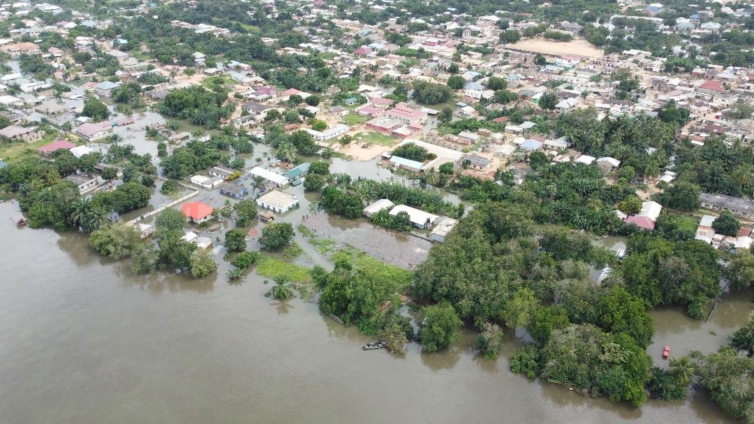If another major disaster were to occur in Ghana, the probability for the government to effectively manage it is low.
This is according to a policy brief by Col. Festus Aboagye (Rtd), which suggests deep-seated vulnerabilities in Ghana’s disaster management framework, along with a critical lack of foresight, preparation, and coordinated action.
The policy brief, which used the Akosombo Dam spillage as a case study, highlighted the urgent need for a complete overhaul of Ghana’s approach to disaster preparedness and response.
Titled "From National Asset to National Ignominy: Ghana’s Akosombo Dam Disaster Exposes Government Negligence and Civil Society’s Heroic Response," the brief revealed a demand for a paradigm shift in disaster management.
According to the brief, although the spillage was controlled, it still managed to cause extensive damage to communities in the Lower Volta Area, impacting North Tongu, South Tongu, Central Tongu, and other districts.
However, the plight of these affected individuals was further worsened by government's lack of recovery response, even after a year.
It also pointed out that inadequate risk assessment, insufficient resource allocation, a lack of comprehensive planning, and delayed action were among the factors contributing to the government's failure to manage the crisis.
Additionally, uncoordinated responses and the government's refusal to accept responsibility for the crisis were also factors.
But for stakeholders such as Members of Parliament (MPs), the media, civil society organisations, private entities, and individuals, many of those affected would still be displaced, with little to show in terms of recovery.
On this basis, the brief recommended several steps for the government to be better prepared for future disasters. These include enhancing early warning systems by investing in advanced multi-channel weather forecasting and early warning dissemination systems to ensure timely and accurate information reaches all stakeholders.
It also suggested improving water management practices to prevent future flooding and undertaking community engagement and education programs to raise awareness about disaster preparedness and response.
Additionally, the brief recommended strengthening public-private partnerships to leverage resources, expertise, and technology from the private sector for disaster preparedness and response efforts.
Read policy brief:
Latest Stories
-
Atletico Madrid beat Barcelona to go top of La Liga
2 minutes -
Usyk breaks Fury’s heart with points win in rematch
4 minutes -
Ghana-Russia Centre to run Russian language courses in Ghana
6 hours -
The Hidden Costs of Hunger: How food insecurity undermines mental and physical health in the U.S.
6 hours -
18plus4NDC marks 3rd anniversary with victory celebration in Accra
9 hours -
CREMA workshop highlights collaborative efforts to sustain Akata Lagoon
9 hours -
2024/25 Ghana League: Heart of Lions remain top with win over Basake Holy Stars
10 hours -
Black Queens: Nora Hauptle shares cryptic WAFCON preparation message amid future uncertainty
10 hours -
Re-declaration of parliamentary results affront to our democracy – Joyce Bawah
11 hours -
GPL 2024/25: Vision FC score late to deny Young Apostles third home win
11 hours -
Enhancing community initiatives for coastal resilience: Insights from Keta Lagoon Complex Ramsar Site Workshop
11 hours -
Family Health University College earns a Presidential Charter
11 hours -
GPL 2024/25: Bibiani GoldStars beat Nsoatreman to keep title race alive
11 hours -
GPL 2024/25 Bechem United keep title hopes alive with narrow win over FC Samartex
11 hours -
2024/25: Dauda Saaka scores as Asante Kotoko beat Dreams FC
11 hours

